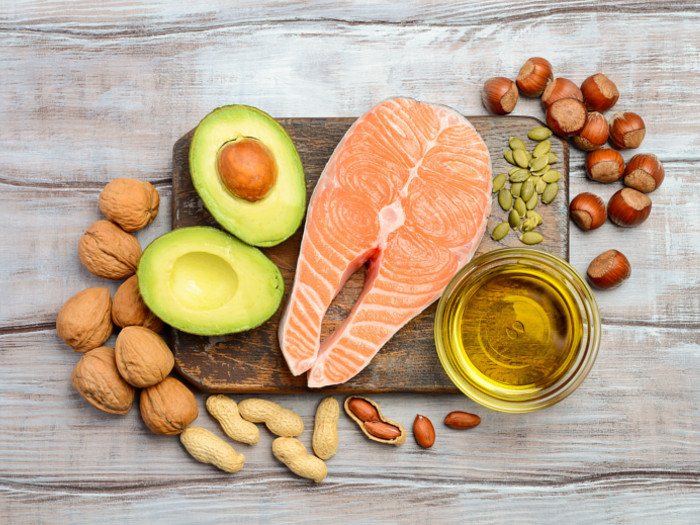Eating foods that are rich in monounsaturated fats is a good thing, but the idea of “good” fats can still be confusing to many people.
What Are Monounsaturated Fats?
Monounsaturated fats are a type of fatty acid that is generally considered safe when consumed in moderation, particularly if they are replacing less healthy types of fat in your diet. The name monounsaturated comes from the fact that these fatty acids contain one double-bonded carbon and one single-bonded carbon, meaning that they are “not saturated”. The two most common forms of these fats are oleic acid and palmitoleic acid. Our bodies are designed to process and utilize these types of fats in helpful ways, so they can actually reduce the overall amount of fat in the body, which is a good thing. [1]
Food Sources
There are a number of excellent sources of monounsaturated fats that are easy to add to your diet, including many of the foods listed below. However, it’s important to remember that even monounsaturated fats should be consumed only in moderation, as an excess can cause inflammation.
Monounsaturated Fat Benefits
The most important benefits of increasing your intake of monounsaturated fat include managing diabetes, aiding weight loss efforts, and improving mood, among many others.
Breast Cancer
Several studies have explored the relationship between monounsaturated fatty acids and breast cancer. While the results have not been consistent, a 2014 paper published in the International Journal of Preventive Medicine suggests that the effects might depend on the food source of these fats and well as their subtypes. The monounsaturated fats from olive oil might be beneficial against cancer. Another study suggests that it might also be beneficial against colon cancer risk. [2] [3]
Diabetes
A lack of insulin sensitivity in the body is one of the main causes of diabetes, but these types of fats are known to improve the body’s ability to regulate glucose and insulin levels. [4] [5]
Mood Swings
When you consume high levels of saturated and trans fats, it can block dopamine receptors in the brain, which can lead to depression and mood swings. However, eating foods high in monounsaturated fats can help to improve hormonal balance in the body. [6]
Cholesterol
Monounsaturated fats are well known to lower levels of LDL cholesterol, which can contribute to plaque in the arteries and coronary heart disease. More of these fats in your system will protect against atherosclerosis, heart attacks, and strokes. [7]
Rheumatoid Arthritis
The other major benefit of these types of fats is their influence on inflammation. For people suffering from arthritis, gout or other common conditions, foods high in these fats can relieve discomfort. [8]
Visceral Fat
A great deal of research has found that this type of fat is able to be used by the body, rather than being stored, which can reduce the amount of visceral fat being formed. [9]
Monounsaturated vs Polyunsaturated
There are a few main types of fat viz., unsaturated fat, saturated fat, and trans fats. Within unsaturated fats, however, there are monounsaturated and polyunsaturated varieties. These are both considered healthy forms of fat and should make up the majority of your fat intake on a daily basis. But here is how they differ:
- They are chemically different based on the number of double bonds present in their structure.
- Monounsaturated fat is known to lower the level of bad cholesterol in the body, while also protecting against inflammation and helping regulate blood sugar levels.
- Polyunsaturated fat, which includes omega-3 fatty acids, also helps lower bad cholesterol. It additionally plays an important role in raising good cholesterol levels.
Word of Caution: Despite the fact that monounsaturated fats are a healthy form of fats, they should still be consumed in moderation. Every gram of fat, regardless of type, contains 9 calories. If you consume too many fats, even the monounsaturated ones, you can experience weight gain. Furthermore, some foods that have these types of fats will also have saturated fats, which you should limit.

